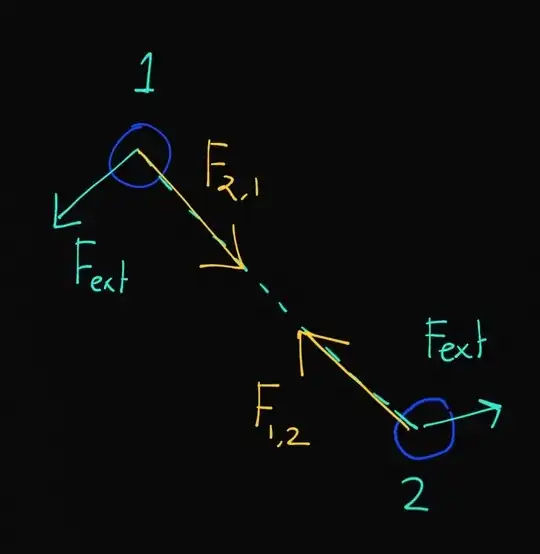Well,I know (and was also told) Newton's third law is just conservation of momentum in disguise.
And momentum is only conserved in a system when $\sum F_{ext}=0$.
Alright,suppose there is a system of 2 particles in free space and they are interacting with each other via forces.Say I put an external force on both the particles in some direction.So,the momentum of the system : ( of 2 particles ) is not conserved.
But,
Newton's third law is just conservation of momentum in disguise.
As momentum is not conserved here,does that mean $F_{1,2}\neq -F_{2,1}$?
$F_{i,j}$ indicates the force of particle $i$ on particle $j$.
